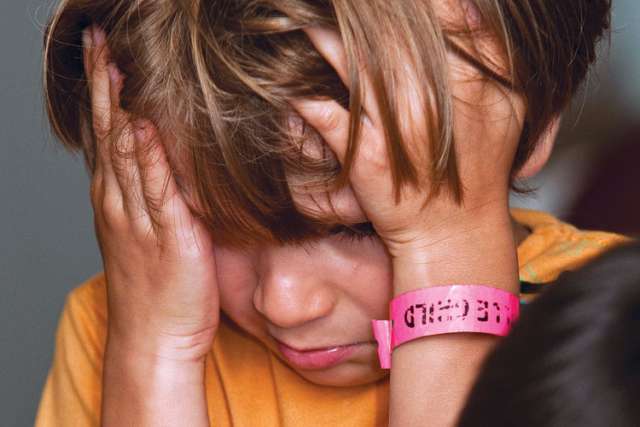The Catholic Children’s Aid Society of Toronto came through the year ending March 31, 2014 with an accumulated surplus of $651,000, improving upon a $507,000 deficit a year ago.
But as a new funding formula for Ontario’s child protection services goes into place over three years, Catholic Children’s Aid had to deal with a 4.5-per-cent decrease in provincial funding last year. The 2013-2014 decrease was $4.6 million, but it’s only the beginning. Over the next two years the agency will see decreases in funding while the province tops up some rural and suburban children’s aid societies and fights the provincial deficit.
“We knew we would be one of the loser agencies,” McConville said.
As the province redistributes money, the provincial budget for child protection has been frozen and will remain frozen until the provincial deficit is eliminated.
While McConville has a three-year sustainability plan in place to keep the agency in the black, she worries about her fiscal room to manoeuvre.
“As of April 1, boards are no longer permitted to run deficits, period,” she said. “However, the new funding model does not include a mechanism for dealing with exceptional circumstances. This is the first time in my memory that there’s not been that release valve.”
Legislation governing children’s aid societies mandates that every CAS must respond to every case that comes to it. But CASs don’t have any way of predicting how many cases or what kinds of cases they will face.
“The new funding model is not based on the demand for services in any given community, but rather a formulaic approach to determining a community’s needs based on socio-economic indicators and some activity indicators.”
Beyond the unexpected, McConville is facing some expected challenges to budget making. She is currently in negotiations with the Canadian Union of Public Employees, which represents the CCAS work force. The union has been without a contract since March 31, but so far there’s been no strike vote.
“This is what’s facing the public sector at large,” said McConville. “The tight money and the constraint is not unique. The government has made it clear there’s no new money.”
CCAS also continues to deal with fallout from five-year-old Jeffrey Baldwin’s death in 2002. Baldwin died on Nov. 30, 2002 of septic shock and pneumonia, both conditions secondary to chronic starvation. The boy was in the care of his grandparents. The CCAS placed him with the grandparents because they were next-of-kin willing to care for the child and his older siblings. The case worker on the file did not check the CCAS’s own records going back as far as 1969 and continuing through the 1980s that showed grandmother Elva Bottineau and Norman Kidman had both previously been convicted of child abuse.
Bottineau and Kidman were convicted of second-degree murder in Baldwin’s death.
When it came to next-of-kin placements it wasn’t the practice of CCAS or any other Ontario children’s aid society to check records. It was assumed that a placement with extended family would almost always be the best possible solution, said McConville. CCAS has changed its policy on record checks for next of kin.
A coroner’s inquest made 103 recommendations, including three addressed directly to the CCAS. McConville sees no problem in meeting the concerns of the inquest and has already complied with requests that communications skills be incorporated into case worker job descriptions and that more comprehensive assessments be carried out in next-of-kin placements.
The third coroner’s recommendation to incorporate the Baldwin case into basic training for case workers was in fact the CCAS’s own recommendation, McConville said.
Other recommendations from the coroner’s jury are unlikely to be implemented. One is that the Government of Ontario look at amalgamating all 46 children’s aid societies into a single, province-wide agency.
The government has until next February to respond to the inquest but a Ministry of Child and Youth Services spokesperson pointed out that the government has already carried out a few more modest amalgamations and that the Commission for a Sustainable Child Welfare System which reported last year did not recommend the disappearance of local children’s aid societies.
Amalgamation would mean the end of Ontario’s two Catholic children’s aid societies in Toronto and Hamilton.
Giving the province the job of caring for at-risk children, as in some other provinces, would solve nothing, said McConville.
“The model here is better,” she said. “It’s not perfect; there’s no such thing. But it’s better than a government-run system... The government can’t be the legislator, the funder, the regulator, the policy-maker and the service provider all at one and the same time without having a conflict of interest.”


